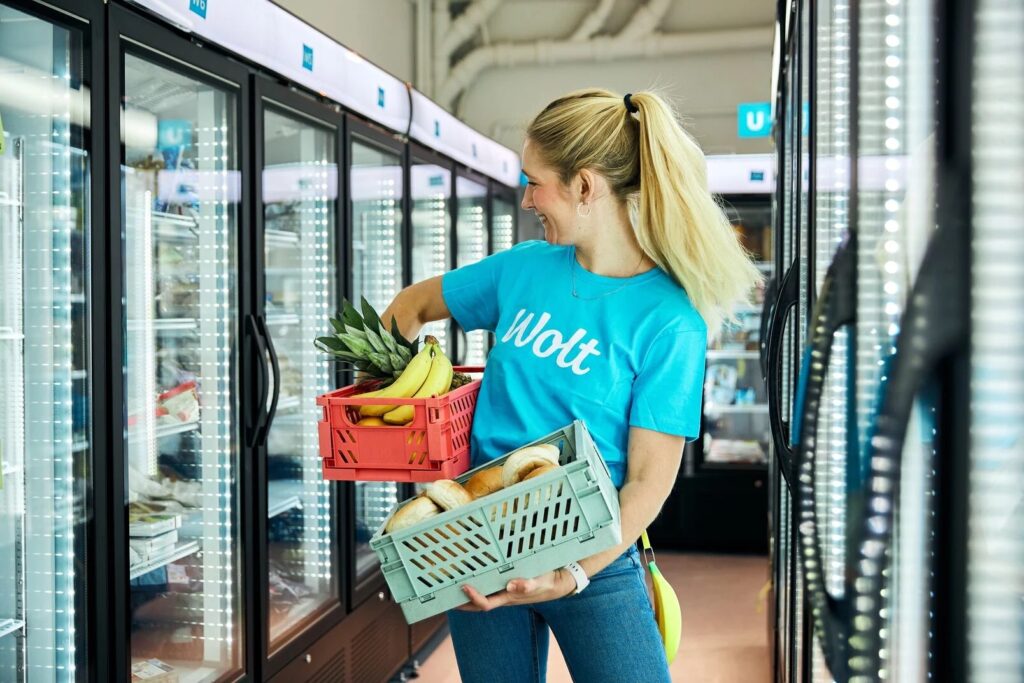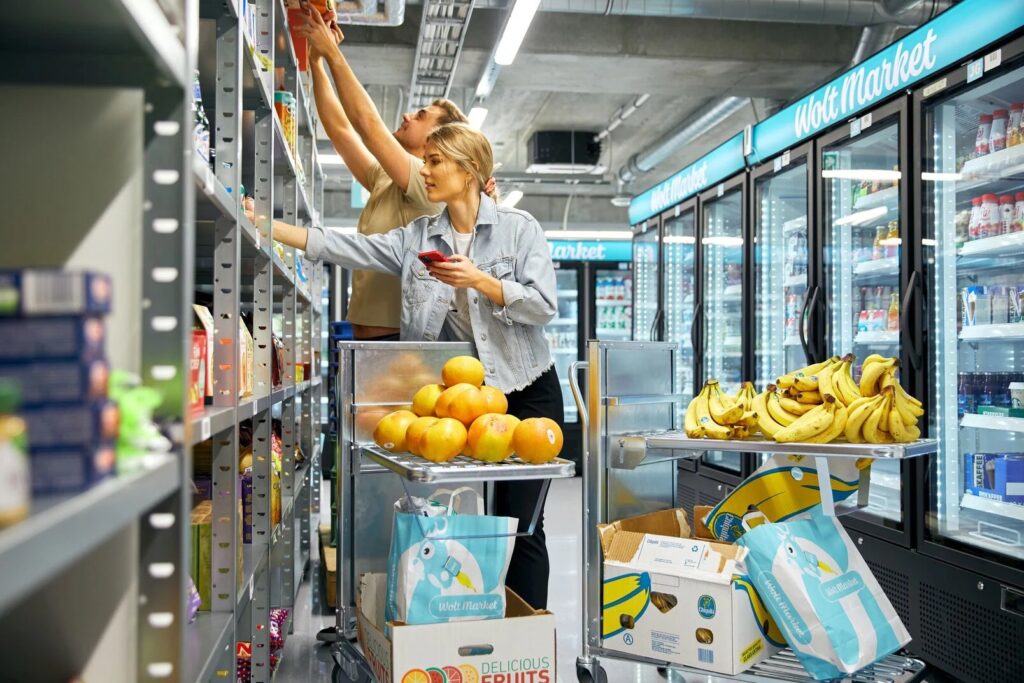Wolt Market Denmark has become the first supermarket outside the Netherlands to adopt the Protein Tracker, a tool aimed at increasing sales of plant-based food.
As Denmark aims to lead the EU’s protein transition during its presidency, its retail sector is following suit.
Wolt Market Denmark, a local subsidiary of the Finnish e-grocer, has adopted the Protein Tracker, a sustainability tool that helps companies measure sales to achieve a better balance between plant- and animal-based foods.
It is the first supermarket to begin using this approach outside the Netherlands, where all major supermarkets publicly report the proportion of plant-based proteins sold.
“We see the Protein Tracker as a necessary tool to ensure that our company sells more plant-based food, thereby helping to drive the transition towards a healthier and more sustainable diet,” said Martin Rouchmann, category manager at Wolt Market Denmark.
Wolt Market Denmark looks to set concrete ‘protein split’ targets

The Protein Tracker was developed by the Green Protein Alliance and ProVeg Nederland, with the help of think tank the Questionmark Foundation, climate non-profit Natuur&Milieu, and Dutch supermarkets.
The initiative was born out of the Dutch government’s ambition to bring protein intake back in balance, split equally between plant and animal sources, as was the case in the 1950s. Now, 85% of retailers in the country are using the tool to drive up sales of plant-based food towards a 60% share by 2030.
Companies can calculate their sales using the Protein Tracker’s methodology, which are then validated by the experts at the Green Protein Alliance and ProVeg Nederland. After this process, they can make the results public and repeat the assessment annually to provide transparency on their progress.
“It is a fantastic tool to set targets and make real progress in moving closer towards the recommendations of the Eat Lancet Commission’s Planetary Health Diet,” noted ProVeg International CEO Jasmijn de Boo.
Several Dutch retailers have reduced their offerings of animal products after adopting the tool, with the largest cutbacks occurring at Jumbo (-42%), Spar (-26%), and Hoogvliet (-23%). Wolt Market Denmark would hope to replicate these actions to lower its emissions and drive healthier diets.
“Our engagement with the Protein Tracker has offered critical insights, affirming that we are progressing toward a more plant-based sales mix,” said Rouchmann.
He added: “Nevertheless, it also underscores that substantial efforts remain necessary. We are now positioned to establish concrete targets and systematically monitor our progress on an ongoing basis.”
Retailers go green as Denmark leads protein transition

Wolt’s move to track its protein sales was encouraged by the Vegetarian Society of Denmark, which invited Green Protein Alliance’s Anke van’t Klooster to share the tool with the Danish retail industry. “By using the Protein Tracker, Wolt Denmark is showing that they are taking the shift towards a more plant-based diet seriously and are setting an example for other Danish supermarkets,” she said.
The move comes during Denmark’s presidency of the European Council. It has laid out a plan to futureproof the region’s food system by focusing on an EU action plan for plant-based foods and a common protein strategy.
“European protein supply is vital for the development of plant-based foods, raw materials for the livestock sector, and the diversification of supply sources. It is also an important element in the transition towards a more sustainable food system,” reads Denmark’s programme for the presidency.
The presidency will host a conference on plant-based foods in September, as well as a Plant Food Summit for “policy inspiration” a month later. In addition, it will address the EU’s Common Agriculture Policy, 82% of whose subsidies go towards livestock farming.
These plans are in line with the Danish government’s recent policies. It promoted meat reduction in favour of plants in its updated dietary guidelines and established a $96M fund to advance the plant-based sector back in 2021, and later became the first country to create a national plan for plant-based foods. These were followed by the landmark Green Deal in 2024, which resulted in the world’s first carbon tax on meat and dairy farming and another $60M funnelled into the plant-based fund until 2030.
Meanwhile, European retailers are ramping up their sustainability initiatives. German retailers Lidl and Rewe Group have both set protein split goals, while in the UK, an alliance of over 200 organisations have urged the government and retailers to take a joint initiative to make reporting of healthy food sales mandatory to include protein sales disclosure too.
And in the Netherlands, Albert Heijn has become the world’s first supermarket to publicly disclose its methane emissions, heeding long-winded calls from sustainability experts.
The post Wolt Market Denmark Adopts ‘Protein Tracker’ to Promote Plant-Based Eating appeared first on Green Queen.
This post was originally published on Green Queen.